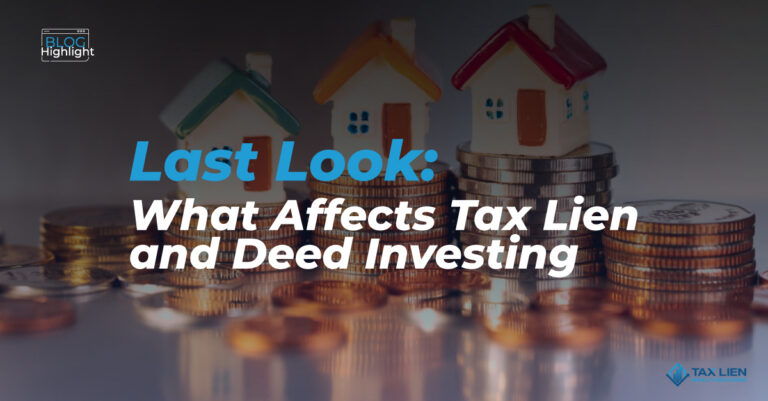All Categories
Featured
Table of Contents
If you want the tax lien repossession process, you ought to call an attorney so you comprehend and consider the risks of this kind of financial investment. - the truth about tax lien investing
Tax lien sales are one manner in which cities and regions attempt to recoup a few of the public bucks they've spent maintaining these homes abandoned by private proprietors. As we'll discuss in this article,. Once property tax obligations are considered overdue, city governments commonly concentrate on providing notice of delinquency and attempting to collect the overdue quantities from the proprietor.
This process commonly takes years - tax lien investing. If a proprietor has left and is unwilling to pay taxes or keep the residential property, the city should spend tax dollars to preserve the home. These costsboarding up the building, mowing overgrown turf and weeds, reacting to fire and police calls on the home, and moreadd up

Owners who have dropped on difficult times definitely need every initiative to maintain them out of misbehavior and in their homes. But usually, if the residential property is vacant and worn-out, we have to assume the owner has actually chosen to desert their interest in the building which they are "unwilling" to pay (though circumstances earlier in the process might have compelled their hand).
How To Invest In Tax Lien
Take, for instance, a single-family home where the owner has long considering that walked away. For several years the local federal government has had to action in and remove rubbish unloaded in the lawn, board up the doors and home windows, and react to calls regarding illegal task on the home. All these services set you back the city government taxpayer dollars.
In several states, those expenses can be collected in the very same way as the unpaid tax obligations, however not in all. In a tax obligation lien sale (or tax certification sale) the regional federal government typically holds a public auction where the winning prospective buyer concurs to pay the most cash for the right to impose the tax obligation lien, starting with a minimal quote of at least the tax obligations possessed, plus suitable interest, charges, and expenses.

When a government sells the tax lien they are generally selling to a private buyer the neighborhood federal government's authority to accumulate the financial debt in exchange for ahead of time payment of the tax obligations owed. The purchaser's acquisition generally includes the capability to make future rate of interest, in addition to recover related charges and expenses sustained by the customer, if the home owner pays the tax financial obligation.
This is, essentially, privatization of a core government function: tax obligation collection. Tax obligation lien sales are especially negative when it pertains to vacant, abandoned, and deteriorated homes due to the fact that they lengthen the period prior to a building can be relocated into the hands of a new, extra responsible owner. Private tax obligation lien purchasers hold the financial debt, but they do not have the titlethe lawful right to ownership of the propertyand oftentimes, they have no interest in getting it.
Robert Kiyosaki Tax Lien Investing
Thinking about budget cuts, city governments in numerous states have lowered internal residential property tax collection and enforcement initiatives and wanted to tax obligation lien sales as a quick mixture of profits - investment lien tax (tax lien vs tax deed investing). Lots of counties select or are mandated by the state to sell tax obligation liens due to the fact that it outsources collection and commonly brings in really needed cash money earlier in the collection process
By moving the local federal government's passion in and enforcement of the tax obligation lien to a personal customer, neighborhood governments lose a lot of their adaptability: flexibility to acquire vacant buildings that the exclusive market doesn't want, or to assist the proprietor prevent shedding their residential or commercial property. With vacant properties, there is a much greater opportunity that the personal customer isn't curious about the property itself.
Tax lien sales can trigger harm in historically disinvested locations. In a depressed housing market, less owners are able to redeem the amount of the debt offered to a tax lien purchaser. These locations are ripe for a various type of tax obligation lien investorspeculative proprietors seeking to get residential or commercial properties on the economical by seizing on the property tax obligation lien, bleeding what little equity is left by renting out a low quality residential or commercial property to at risk lessees, and afterwards abandoning the property when they've made back their financial investment.
Not all state regulations offer city governments the power to intervene in this cycle. Either means, the building stays vacant and in limbo, all the while enforcing significant prices on its next-door neighbors and taxpayers. It's understandable that lots of local federal governments turn to tax lien sales due to the fact that they assist money necessary civil services.
If the city government instead sells the building (aka the "tax obligation deed"), as opposed to the tax financial obligation, after that they are in control of what happens to the residential or commercial property and the enforcement process if the proprietor remains to not pay the building tax owed. The federal government will supply the proprietor an affordable time to repay the tax obligation debt, after which the government will certainly confiscate its passion in the tax obligation lien and the proprietor's right of redemption.
From their beginning, these auctions were locations for investors to make money via exploitation. In very early 20th-century cities, infamous "tax sharks" like Chicago's Jacob Glos and New york city's Charles Wiltsie collected fortunes by getting up scores of tax liens on household buildings, charging their owners exorbitant total up to remove the lien, or waiting up until the target date for settlement passed and claiming the act.
Tax Lien Investing Colorado

Phone call to abolish tax lien sales and overhaul tax misbehavior regulations have periodically erupted. Often, they have come in reaction to cases of inadequate, typically elderly home owners that shed their homes to dishonest tax obligation customers over little tax obligation financial debts. With a couple of exemptions, state legislatures have stood up to structural reforms (tax lien redemption period).
Those that have paid off their home mortgages (primarily senior persons or individuals who had acquired a family home) have to also find the cash to pay real estate tax. This discusses why 70 percent of the homes cost tax lien sales are owned outright. It is well hobby for states to take on an even more humaneand more effectivesystem for residential property tax obligation enforcement.
Table of Contents
Latest Posts
Excess Proceeds Texas
2021 Delinquent Tax Auction
Tax Lien Investing California
More
Latest Posts
Excess Proceeds Texas
2021 Delinquent Tax Auction
Tax Lien Investing California